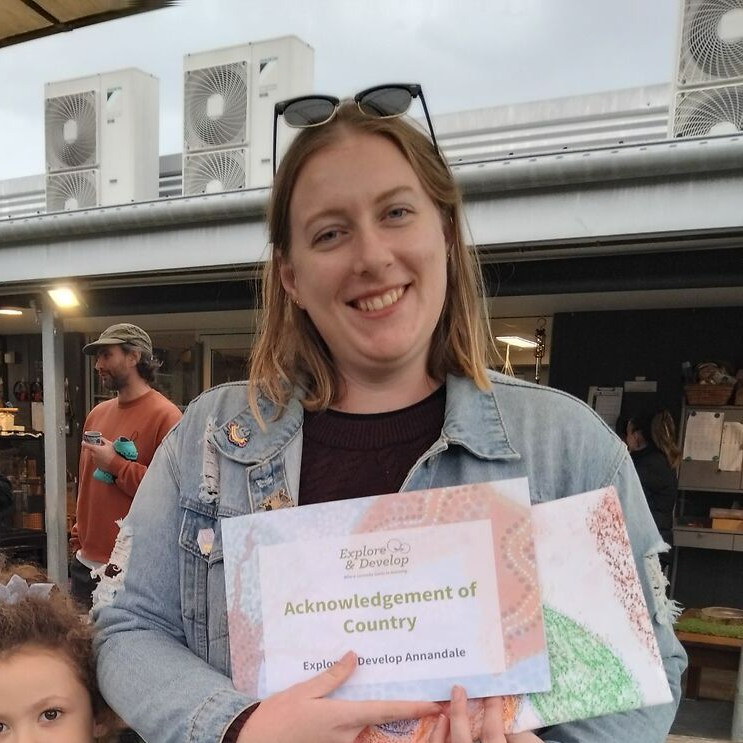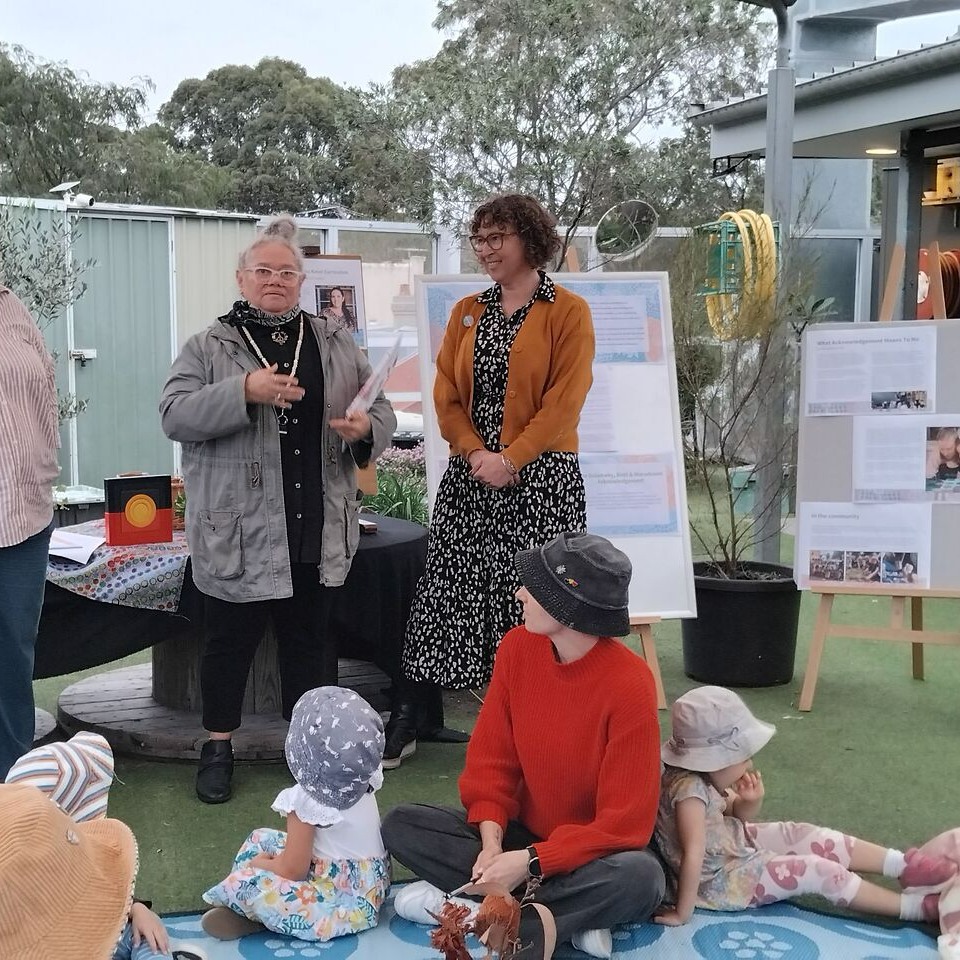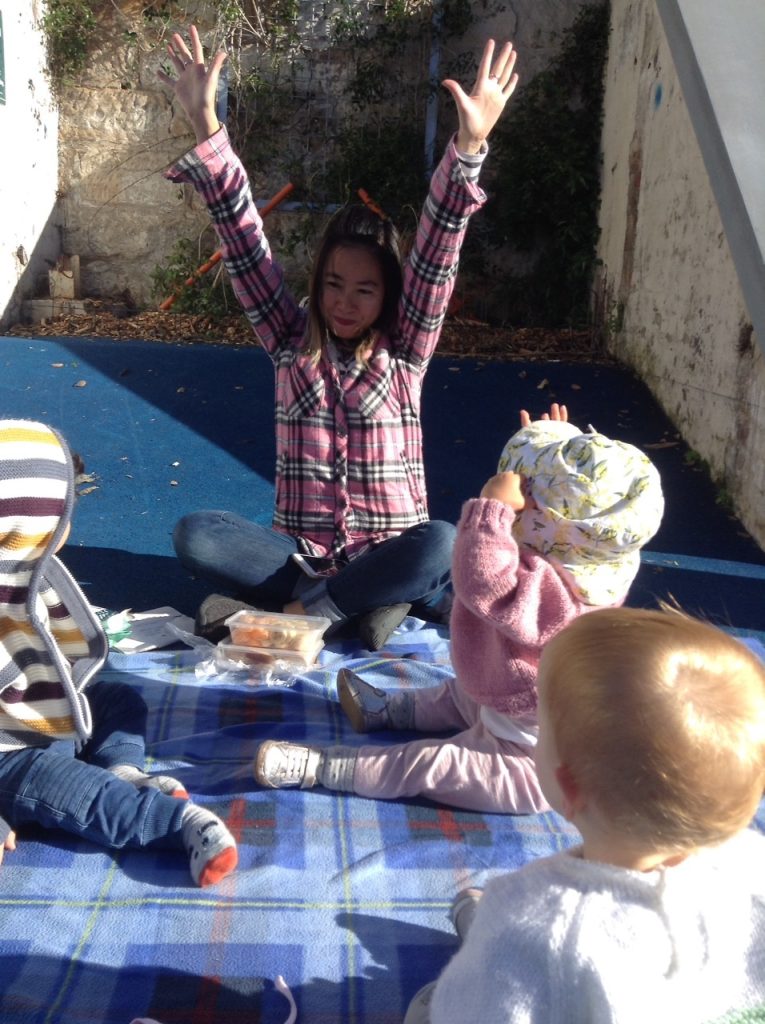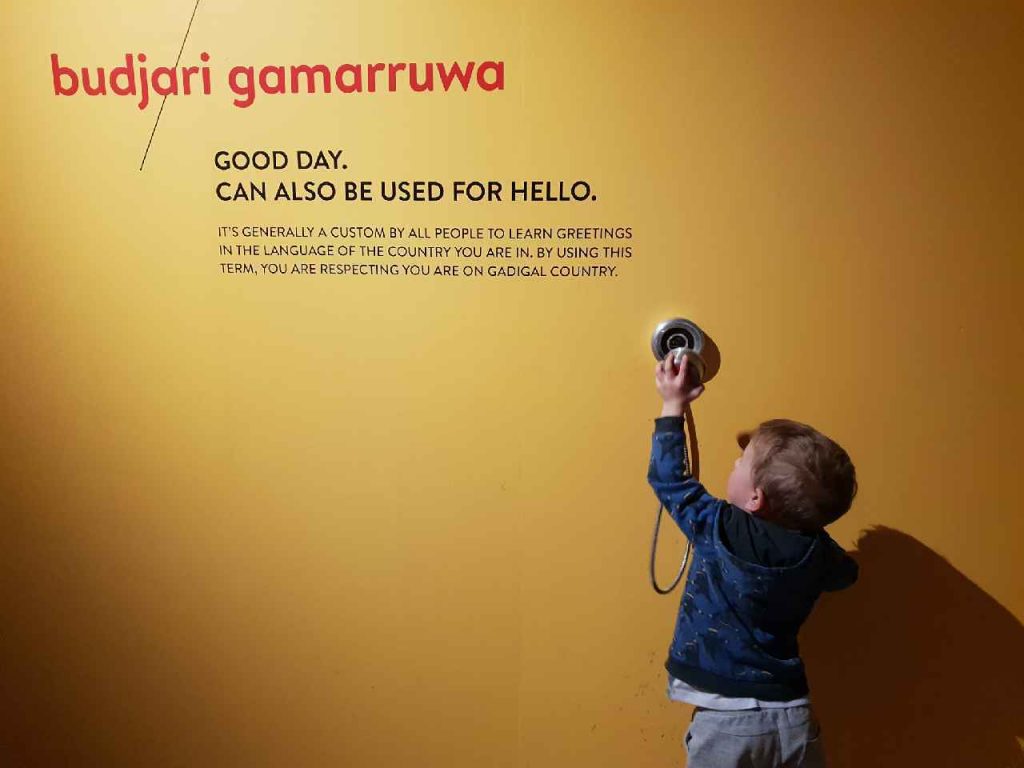The educators, children and families at Explore & Develop Annandale acknowledge the Gadigal People of the Eora Nation as the traditional Custodians of the Country upon which we learn and play.
We acknowledge First Peoples’ ongoing connections to Lands, Seas and Community. We pay our respect to all Aboriginal and Torres Strait Islander Peoples. We extend our respects to our Aboriginal and/or Torres Strait Islander colleagues.
At the 2020 Inspire conference in Naarm (Melbourne), Gheran Yarraman Steel, a proud descendant of the Boon Wurrung People of the Kulin Nation, welcomed us. In his welcome, Gheran shared with us that the path to reconciliation begins with knowing the history of place. Gheran encouraged us to ‘come [with] purpose’ and to think about our ‘responsibility of knowledge’. This resonated with me.
As teachers and educators, it is our role to listen with open hearts and minds and to responsibly share what we learn with families, children, and the wider community—to do our best until we know better.
We recently wrote and published an Acknowledgement of Country book, which exemplifies our listening and our responsibility to acknowledge the history of our place and share the knowledge we have built thus far. The book includes many of our educators’ voices. The words in between have been written by Madeleine Gill, a Jerrinjah women and teacher, with Su Garrett and Melanie Elderton.

An Acknowledgement of Country is a way of showing respect for the Traditional Custodians of the Country you are on and can be given by both non-Indigenous people and Aboriginal and Torres Strait Islander Peoples who are connected to another place (Staines & Scarlet, 2018).
This is different to a Welcome to Country, which is a formal welcome onto Land and can only be delivered by the Traditional Custodians of that Country or Aboriginal and Torres Strait Islander Peoples who have been permitted Traditional Custodians to welcome visitors to their Country (Martin, 2016).
First Nations’ Peoples are intrinsically connected to Country;
“…they speak to Country, sing to Country, visit Country, worry about Country, feel sorry for country, and long for Country. People say that country knows, hears, smells, takes notice, takes care, is sorry or happy…” (Rose, 1996. p.7).
You will often see Country, Lands, and Seas capitalised in the context of Indigenous culture because Aboriginal and Torres Strait Islander Peoples discuss and refer to Country as they would a person. In this context, these words are considered proper nouns, not just descriptors (Rose, 1996). For Aboriginal people, Country is a living being that they care for and cares for them in return.
Connection to Country is important, whether a person lives in the city or in a rural area. From the time of the Dreaming, this spiritual connection and care for the Land has been integral to the very being of First Nations Peoples (Australian Institute of Aboriginal and Torres Strait Islander Studies [AIATSIS], 2011).

Here is the land, here is the sky
Here are my friends, and here am I
We acknowledge the Gadigal people
The traditional custodians of the land on which we learn and play
Hands up, hands down
We’re on Gadigal ground
Budjari Gamarruwa (Gadigal greeting)
We raise our hands to the sky that covers the Gadigal Land
We place our hands on the ground in the care of the Gadigal Land
We place our hands on our hearts in the love of the Gadigal Land
Petuwa (Gadigal – to share warmth or love)

In 2016, we reflected on the first 3 years of our operation and planned for our future. One outcome was the agreement that we didn’t know enough about Aboriginal and Torres Strait Islander culture. We had resources; we had undergone a small number of whole team professional development sessions. However, they didn’t have the impact needed. If we didn’t know, what could we share with our communities?
We made learning our priority and connected with Jess Staines at Koori Curriculum. We committed to the professional development of the entire team over a period of several years. This experience gave us the confidence to give things a go and connect with the community, both within and outside of the early childhood community.
Once we connected with Jess we assessed how well our philosophy connected with Aboriginal and Torres Strait Islander culture. Our first step was implementing a daily Ritual of Acknowledging Country. Jess introduced us to the Acknowledgement written by Auntry Tracey Linn Bostock a proud Bunjalung/Mulungjali woman who was born in Brisbane, QLD and moved to Sydney in 1962 and is now residing along the inner west Goola’yari (Cooks River) Tempe with her family.
The original words and actions that Aunty Tracey created are to educate and guide children to understand the importance of knowing the traditional land that they live and play on and how to care for and respect the land is as follows:
“I would like to Acknowledge the (name of clan/tribe of country) and other clans on whose land we are now gathered on.
I acknowledge the spirits of the land, our Elders past, present and future and especially the children of the land.
I pay my respect to other Aboriginal and Torres Strait Islander peoples that are here with us also.”
“We touch the ground of the (name of clan/tribe of country) land
We reach for the sky that covers the (name of clan/tribe of country) land
And we touch our hearts for the care of the (name of clan/tribe of country) land”
Aunty Tracey’s songline has been shared (with permission) within Inner West Council Children and Family Services, her communities, statewide, nationally and internationally. It also made its way onto ABC’s Play School song “Hand in Hand” for the Acknowledgement of Country episode in July 2019. (Scarlet & Bostock, 2022).
Aunty Tracey Linn Bostock has always asked that when the Acknowledgement of Country for children is shared that you know the history of who created the Acknowledgement and the reason is, when it comes to Black History in the past some words and names are changed or deleted and claimed by others. Aunty Tracey has always wanted to share her songline with community and be recognized and acknowledged for her Aboriginal culture in early childhood education.

References
Australian Institute of Aboriginal and Torres Strait Islander Studies, [AIATSIS]. (2011). The Benefits Associated with Caring for Country:
Literature review. https://aiatsis.gov.au/sites/default/files/research_pub/benefits-cfc_0_3.pdf
Australian Institute of Aboriginal and Torres Strait Islander Studies, [AIATSIS]. (2022). Welcome to Country. https://aiatsis.gov.au/
Boomali. (2024). Tracey L. Bostock. https://boomalli.com.au/artist/tracey-l-bostock/
Goodwin, J. & Hydon, C. (Eds.). (2023). Reconciliation in Action. Early Childhood Australia Inc.
Martin, K. L. (Ed.). (2016). Voices & Visions: Aboriginal early childhood education in Australia. Pademelon Press.
Narragunnawali. (2024). Acknowledgment of Country. https://www.narragunnawali.org.au/
Rose, D. B. (1996). Nourishing Terrains: Australian Aboriginal views of landscape and wilderness. Australian Heritage Commission.
Scarlet, R. R. (2016). The Anti-Bias Approach in Early Childhood (3ʳᵈ ed.). Multiverse Publishing.
Scarlet, R. R., & Bostock, T. L. (2022). Acknowledgement of Country: The original story. The Inclusion Room.
Staines, J., & Scarlet, R. R. (Eds.). (2018). The Aboriginal Early Childhood Practice Guide. Multiverse Publishing.
Yunkaporta, T. (2019). Sand talk: How Indigenous thinking can save the world. Text Publishing. https://cat2.lib.unimelb.edu.au:443/record=b7338253~S30